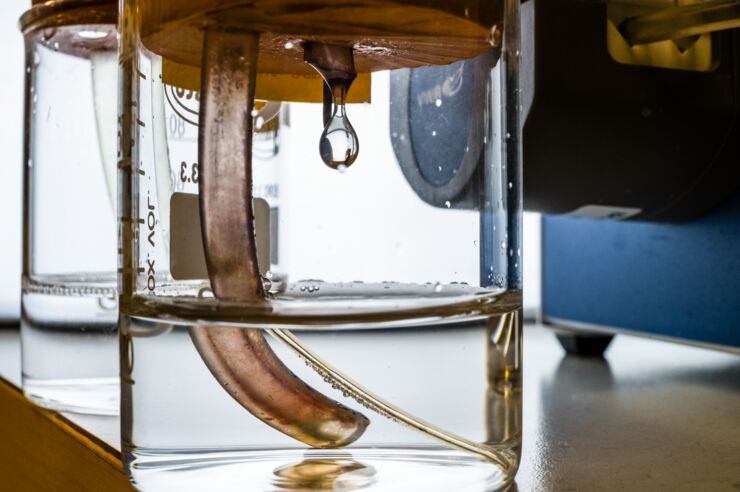Scientists from the Laboratory of Organic Electronics at Sweden's Linköping University have demonstrated an organic redox flow battery based on conducting electrodes that are made of a special kind of polymer known as poly(3,4‐ethylenedioxythiophene).
This organic material, which is also known as PEDOT, can significantly increase a battery's energy density. “A natural porosity at the molecular level distinguishes conducting polymers from traditional heterogeneous electrocatalysts,” the scientists said.
The battery's electrodes were doped so they could transport either positive ions or negative ions. “Conducting polymers are attractive material systems since they are composed of atoms of high natural abundance and the active electrocatalytic site can easily be chemically modified to promote specific desired reaction pathways,” the research group said.
The materials can be chemically designed to control or prevent the diffusion of the molecular reactants within their bulk, which in turn enables better control of the current density, they added. The battery was equipped with a water-based electrolyte consisting of a solution of redox quinone molecules, which are abundant in nature, as they can be extracted from forest-based materials.
“Quinones can be derived from wood, but here we have used the same molecule, together with different variants of the conducting polymer PEDOT,” said researcher Viktor Gueskine. “It turns out that they are highly compatible with each other, which is like a gift from the natural world.”
The group said the PEDOT electrocatalytic electrodes make the quinone molecules switch between their oxidized and reduced states, which is what creates a flow of protons and electrons.
“It is normally difficult to control the ion process, but we have managed it here,” said researcher Mikhail Vagin.
The scientists defined this phenomenon as ion‐selective electrocatalysis (ISEC). They acknowledged that organic flow batteries have still lower energy density compared to vanadium redox flow batteries, but they also highlighted their lower costs and the fact that the devices are completely recyclable.
The scientists presented their findings in “Ion‐Selective Electrocatalysis on Conducting Polymer Electrodes ‐ Improving the Performance of Redox Flow Batteries,” which was recently published in Advanced Functional Materials.
This content is protected by copyright and may not be reused. If you want to cooperate with us and would like to reuse some of our content, please contact: editors@pv-magazine.com.




By submitting this form you agree to pv magazine using your data for the purposes of publishing your comment.
Your personal data will only be disclosed or otherwise transmitted to third parties for the purposes of spam filtering or if this is necessary for technical maintenance of the website. Any other transfer to third parties will not take place unless this is justified on the basis of applicable data protection regulations or if pv magazine is legally obliged to do so.
You may revoke this consent at any time with effect for the future, in which case your personal data will be deleted immediately. Otherwise, your data will be deleted if pv magazine has processed your request or the purpose of data storage is fulfilled.
Further information on data privacy can be found in our Data Protection Policy.